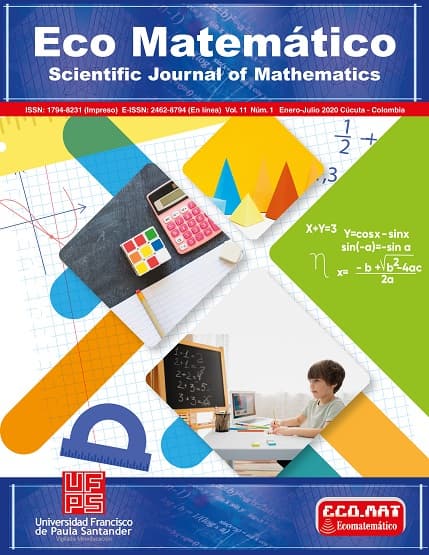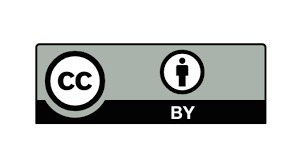The resolution of mathematical problems present in the pedagogical practices of the basic education teacher
La resolución de problemas matemáticos presente en las prácticas pedagógicas del docente de educación básica
Main Article Content
This article is the result of a research that aims to analyze the pedagogical practices of teachers and in particular to investigate the presence and promotion of mathematical processes proposed by the Ministry of National Education of Colombia. This report focuses on the process of formulating and solving mathematical problems, considering all aspects of pedagogical practices framed in the teaching framework such as planning and preparation of classes, learning environments, learning strategies and professional responsibilities. Each of these is considered a fundamental pillar for the process of self-reflection and improvement of teachers in the classroom. As for the adopted methodology, it adjusts to the characteristics of the quantitative approach, at a descriptive level with a field design. The members of the sample are a group of 80 teachers who work in public or private institutions in Cúcuta and its metropolitan area. A questionnaire was applied that has been validated and consists of 9 items that correspond to the problem-solving process and 34 items correspond to the block of pedagogical practices that are evaluated using a five-level Likert scale. The results found allow us to highlight that 83.6% of the teachers’ state that when planning their classes, they pose problem situations using different types of support and identifying what their students are expected to learn. Based on the analysis of pedagogical practices, it is intended to answer in future research the questions: What is the mathematical process that teachers promote in the classroom? What aspects do teachers take into account when planning the class with respect to the mathematical processes. These concerns arise as a complement to the result of this research, since it is of the utmost importance that the teacher potentiates each of the mathematical processes.
Downloads
Article Details
Arteta, J. (Ed.). (2000). Los fraccionarios en primaria. Universidad del Norte. 57-168
Prada-Núñez, R., Hernández-Suárez, C. A. & Fernández-Cézar, R., (2020). Procesos matemáticos en la práctica pedagógica: un comparativo entre Colombia y España. Aibi revista de investigación, administración e ingeniería, 29-36
Ignacio, N. G., Nieto, L. J. B., & Barona, E. G. (2006). El papel de la afectividad en la resolución de problemas matemáticos. Revista de educación, 340, 551-569
Medina Ordoñez, Y. M., Ojeda Gómez, M. L., Parra Silva, A. F., & Ruiz Rodríguez, A. P. (2018). Transformaciones en la práctica pedagógica de docentes de primaria asociadas a la resolución de problemas de las matemáticas escolares (Master's thesis, Universidad de La Sabana)
Niño-Blanco, J. A., Hernández-Suárez, C. A., & Bonilla-González, M. Y. (2019). Práctica pedagógica, dominio afectivo y procesos matemáticos de los docentes de matemáticas en el nivel de educación básica del sector público. ECO MATEMATICO, 10(1), 19-27. https://doi.org/10.22463/17948231.2538
Pérez, Y., & Ramírez, R. (2011). Estrategias de enseñanza de la resolución de problemas matemáticos: Fundamentos teóricos y metodológicos. Revista de investigación, 35(73), 8-26
Polya, G. (1945), How to solve it, Princeton, Princeton University Press
Salazar-Torres, J. P., Contreras-Santander, Y. L., & Jaimes-Mora, S. S. (2016). Semiótica: Un recurso fundamental en los procesos de argumentación matemática escrita. ECO MATEMATICO, 7(1), 20-32. https://doi.org/10.22463/17948231.1016
Sánchez, N. M. (2003). La resolución de problemas matemáticos. Una caracterización histórica de su aplicación como vía eficaz para la enseñanza de la matemática. Pedagogía Universitaria
Wiggins, G. (2011). Giving Students a Voice: The power of Feedback to Improve Teaching. Educational Horizons, 89(3), 23-26







